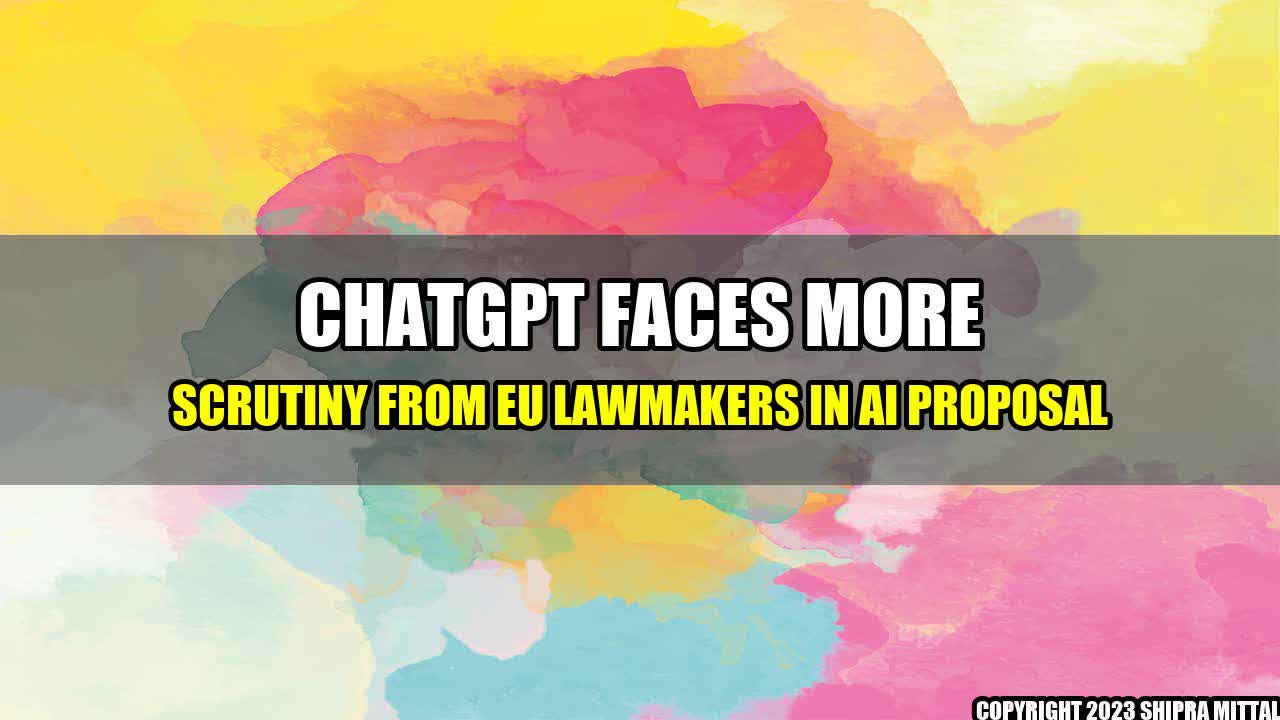Introduction
In a world where companies are increasingly relying on artificial intelligence for decision making, the European Union is voicing its concerns about the risks and challenges that come with AI technology. Recently, the EU has been scrutinizing AI proposals put forth by companies in order to ensure they align with ethical and legal standards.
Language model, ChatGPT, developed by OpenAI, caught the attention of EU lawmakers with its proposed AI governance plan. The proposal suggested using a risk-based approach to regulate AI development, similar to how pharmaceuticals are regulated. Under this approach, AI development would be evaluated based on the potential risks and benefits to society, with higher risk AI technologies facing tighter regulations.
To support its proposal, ChatGPT cited examples of controversial AI technologies that have caused harm or raised ethical concerns, such as facial recognition software and predictive policing. ChatGPT argued that a regulatory framework is necessary to mitigate these risks and ensure that AI benefits society as a whole.
The EU is not the only governing body to scrutinize AI development. In recent years, countries like the United States and China have implemented their own AI regulations, in order to protect their citizens and ensure that AI is used ethically. For example:
- The United States Federal Trade Commission (FTC) has imposed fines on companies for misusing consumer data and violating privacy laws. Recently, the FTC fined Facebook a record $5 billion for its mishandling of user data.
- China has implemented a social credit system, which uses AI and data mining to monitor citizens' social behavior. This system has raised concerns about privacy, freedom of speech, and discrimination against marginalized groups.
These examples demonstrate the importance of AI governance and the need for ethical standards to be upheld in the development and implementation of AI technology.

Akash Mittal Tech Article
Share on Twitter Share on LinkedIn